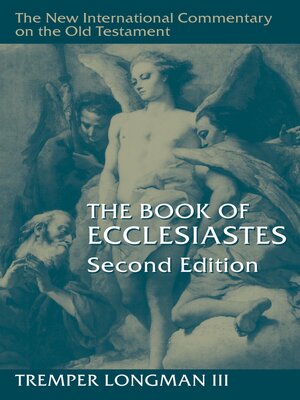The Book of Ecclesiastes
ebook ∣ New International Commentary on the Old Testament (NICOT)
By Tremper Longman

Sign up to save your library
With an OverDrive account, you can save your favorite libraries for at-a-glance information about availability. Find out more about OverDrive accounts.
Find this title in Libby, the library reading app by OverDrive.



Search for a digital library with this title
Title found at these libraries:
| Library Name | Distance |
|---|---|
| Loading... |
A trustworthy guide—newly updated and expanded—to the book of Ecclesiastes
Ecclesiastes is one of the most perplexing and haunting books of the Old Testament. The main speaker in the book, a figure known as Qohelet, ponders a question that people are still asking today: "Where can we find meaning in the world?" But while the question itself is familiar, devout readers of Scripture may find Qohelet's answer startling. "Meaningless," says Qohelet, "everything is meaningless." For readers seeking to understand how this deeply pessimistic perspective fits into the rest of biblical revelation, Tremper Longman III's commentary on Ecclesiastes is a trustworthy guide. In this updated edition, Longman maintains his canonical-Christocentric approach to interpreting Ecclesiastes but expands his discussion of secondary literature by engaging with recent scholarship from a wide range of authors—Stuart Weeks, John Goldingay, Arthur Keefer, Knut Heim, George Athas, and many others. Longman first provides an extensive introduction to Ecclesiastes, exploring such background matters as authorship, language, genre, structure, literary style, and the book's theological message. He argues that the author of Ecclesiastes is not Solomon, as has been traditionally thought, but a writer who adopts a Solomonic persona. In the verse-by-verse commentary that follows, Longman helps clarify the confusing, sometimes contradictory message of Ecclesiastes by showing that the book should be divided into three sections—a prologue (1:1–11), Qohelet's autobiographical speech (1:12–12:7), and an epilogue (12:8–14)—and that the frame narrative provided by prologue and epilogue is the key to understanding the message of the book as a whole. This carefully researched commentary is an essential resource for pastors, seminary students, and thoughtful readers of Scripture.







